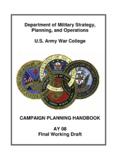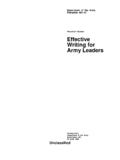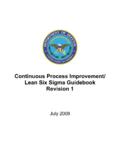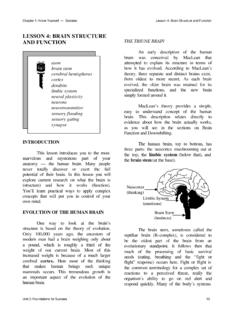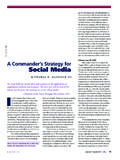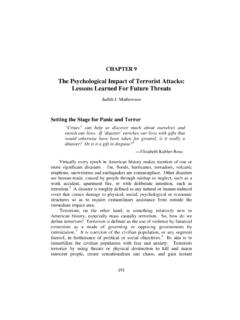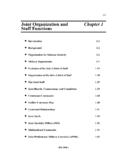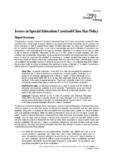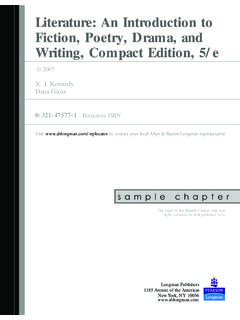Transcription of Directorate-General for Translation European …
1 Directorate-General for Translation European commission HOW TO WRITE CLEARLY This booklet is intended for all writers of English at the European commission . Whether your job is drafting or translating, here are some hints not rules that will help you to write clearly and make sure your message ends up in your readers brains, not in their bins. Put the reader first page 2 Use verbs, not nouns page 3 Concrete, not abstract page 4 Active, not passive page 5 Whodunnit? Name the agent page 6 Making sense managing stress page 7 KISS: Keep It page 8.
2 And Simple page 9 False friends .. page 10 .. and other pitfalls page 11 References page 12 Le secret d ennuyer est .. de tout dire. The secret of being a bore .. is to tell everything. Voltaire 1 Put the reader first There are three groups of people likely to read commission documents: 1. EU insiders (colleagues in the commission or other institutions) 2. outside specialists 3. the general public. The third group is by far the largest and most important. As more commission documents are made accessible to the general public, criticism of FOG will increase. Always bear in mind the people you're writing for: not your committee, your boss, or the reviser of your translations, but the end users.
3 They are in a hurry. Don't overestimate their knowledge, interest or patience. Whatever the type of document - legislation, a technical report, minutes, a press release or speech - you can enhance its impact by writing clearly. Try to see your subject matter from your readers' point of view; try to involve them ("you" is an under-used word in commission documents); and try not to bore them. You can avoid irritating half your readers by replacing gender-specific words (replace "layman" by "lay person"; "salesgirl" by "sales assistant"; "workman" by "worker"). Avoid "he, she/ his, her" by using "they/ their" instead. 2 Use verbs, not nouns One simple step to clearer English is to change .. to this : by the introduction of by introducing for the allocation of for allocating of the provision of of providing What are we doing here?
4 Turning a noun back into a verb. English prefers verbs to nouns. Many words ending in "-ion" are simply verbs in disguise. They are called "nominalisations" (yes, another word ending in "-ion"). Look at these: submit an application for apply for carry out an evaluation of evaluate implement an investigation of investigate and there are others which don't end in "-ion": conduct a review of review perform an assessment of assess effect a renewal of renew So we can improve an unclear text by turning some nouns back into verbs: The committee came to an agreement to the effect that a study should be carried outby the consultants into the feasibility of the provision of national funding. The committee agreed that the consultants should study the feasibility of providing national funding.
5 Sabotage! You can take advantage of this if you want. If the consultants' report is too candid about the non-feasibility of providing national funding, just effect the nominalisation of all their hard-hitting verbs and the result will be sufficiently soporific to send your readers to sleep. 3 Concrete, not abstract English is a notoriously blunt language. Too much abstract language (FOG) may make your reader suspect that something real and unpalatable is being wrapped up in verbiage. In general, if you have a choice between an abstract word and a more concrete one that means the same, choose concrete. It will make your message more direct. Sometimes, instead of this .. : .. you could try this: establish fix emphasise highlight orient steer eliminate cut out determine set objective goal, target initiating impulse trigger employment opportunities jobs negative evolution downward spiral decisive innovation breakthrough Sabotage!
6 You can take advantage of this if you want. "These countries are asking for dates and facts, but all we can give them is prevarication and obfuscation." 4 Active verbs, not Another easy step to clearer English is to use verbs in the active voice ("the car hit the tree") rather than the passive ("the tree was hit by the car"). Compare these: New guidelines have been laid down by the President in the hope that the length of documents submitted by DGs will be restricted to 20 pages. The President has laid down new guidelines in the hope that DGs will restrict the length of documents to 20 pages. Look how we can improve a text by cutting out passives .. : bad: A recommendation was made by the European Parliament that consideration be given by the Member States to a simplification of the award procedure.
7 A bit better: The European Parliament made a recommendation that the Member States give consideration to a simplification of the award procedure. and then by cutting out abstract nominalisations: much better: The European Parliament recommended that the Member States consider simplifying the award procedure..except where passives are useful You don't have to avoid passive verbs at all costs. They can be useful: 1. If there's no need to say who was responsible for the action because it's obvious. ("All commission staff are encouraged to write clearly.") 2. If you want to focus attention on the receiver of the action by putting that first. ("One of the most controversial members of the European Parliament has been interviewed by the press about the proposal.)
8 ") 3. If you want to position old or known information at the start of the sentence, so you can put new or surprising information at the end. ("After the Summit the President was interviewed by a ten-year-old pupil from the European School.") And of course: 4. Sabotage! If you want to evade responsibility. "In my department the advice on clear English has been disregarded." 5 Whodunnit? Name the agent If you follow the advice to use active verbs instead of passive ones, your writing will become clearer because you will be forced to name the agent - that is, the person or organisation or thing that carries out the action. It's easy to identify the agent here .. : This proposal was approved at commission level. The commission approved this proposal.
9 But not so easy here: It is considered that tobacco advertising should be banned in the EU. Who considers? The writer, the commission , the public, the medical profession? Why not name the agent? Remember that EU texts have to be translated into several other languages - not all of which can be quite as foggy and impersonal as English. By writing vague English you are asking for non-matching translations, as each translator tries to guess what you might have meant and comes up with a different solution. Don't be afraid to make "I" or "we" the agent. This is perfectly acceptable, even in technical documents, and will make your meaning much clearer: You have been informed of our acceptance of your project application.
10 We have informed you that we have accepted your project application. Don't be afraid to make an inanimate object the agent ( "The Directive calls upon employers to cut working hours.") This is taboo in some other languages, but correct in English. 6 Making sense - managing stress Sometimes you have to write (or improve) a text containing a mass of facts and ideas. Here are some ways of untangling the information so that readers will understand each sentence the first time they read it. Name the agents of each action and put the actions in the order in which they occur. Its decision on allocation of ESF assistance will be taken subsequent to receipt of all project applications at the Committee's meeting. When all applicants have submitted their project applications, the Committee will meet to decide how much ESF aid it will grant to each one.
